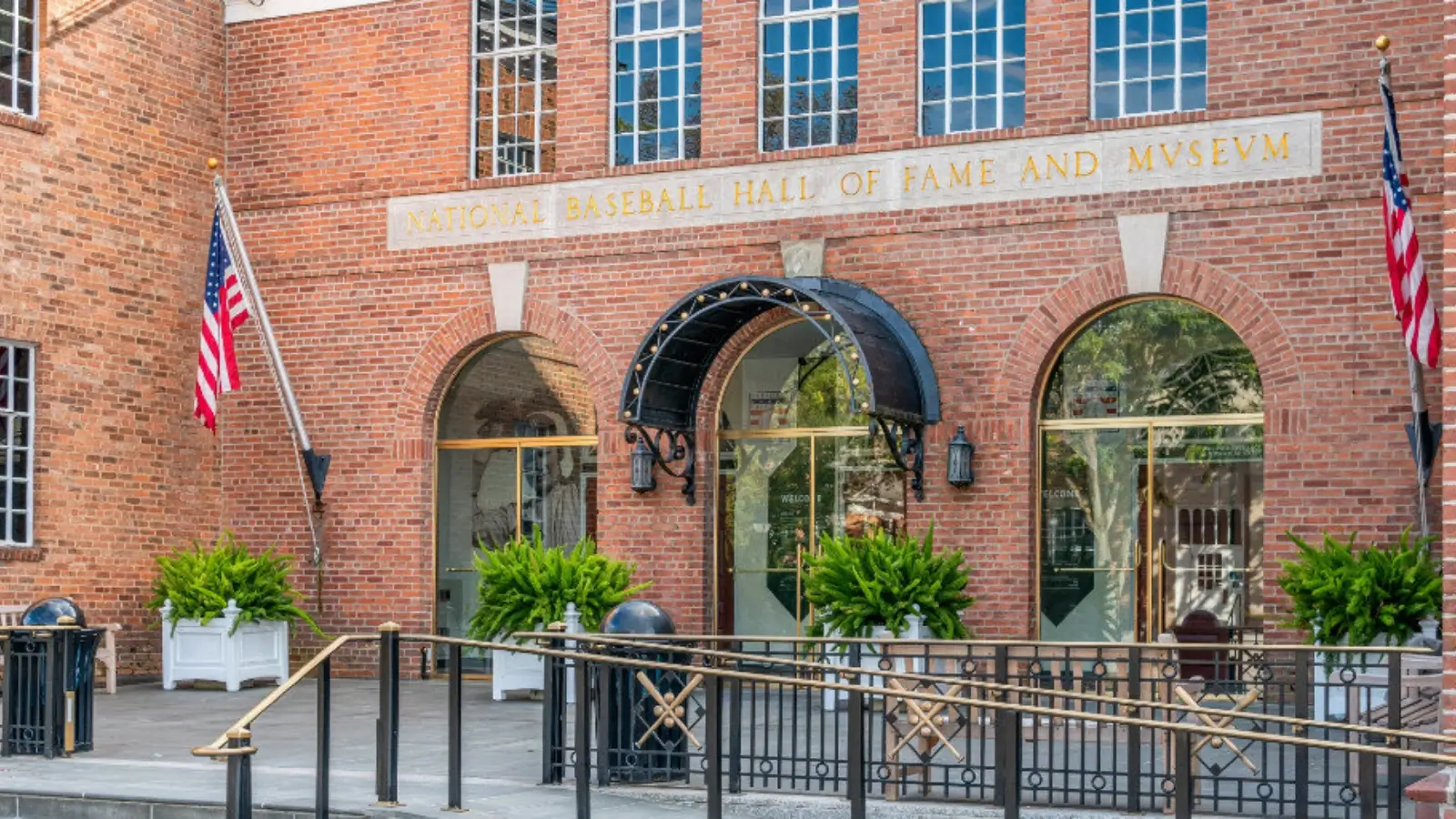


Every summer, Cooperstown transforms from a quiet upstate village into one of America’s busiest youth sports hubs. Two major 12U tournament complexes, Cooperstown Dreams Park and Cooperstown All Star Village, draw thousands of players and their families for week-long competitions that repeat all season. The influx doesn’t just fill ballfields, it powers a diversified local economy of lodging providers, restaurants, retailers, engravers, laundries, transportation services, and experience-driven microbusinesses that have learned to thrive on “tournament time.”
At the core is sheer volume. Week long events run on a reliable cadence from late spring through late August, with opening ceremonies, pin trading sessions, pool play, and bracketed championships that keep families in market for six to seven days at a clip. Just as important, most families travel with siblings and sometimes grandparents, turning a single athlete’s schedule into a multi-person vacation. That predictable, household demand gives local businesses the confidence to hire seasonal staff, stock up on inventory, and extend hours for the summer run.
Local hotels and vacation rental owners track the tournament calendar as closely as the game schedule itself. The Otesaga Resort Hotel sets the tone for full-service hospitality, while smaller lakeside options like Bayside Inn & Marina and Lake ’N Pines Motel plan staffing and “turn day” housekeeping around Saturday arrivals and departures. Property management outfits gear their operations to the youth-baseball rhythm, adding family-friendly touches like grill kits, extra laundry capacity, and outdoor seating for team dinners.
Beyond hotels, whole portfolios of vacation homes have been shaped by tournament demand (thanks to apps like AirBNB and Vrbo). Hosts design welcome binders specifically for baseball families that list batting cages, pizza joints, early morning coffee runs, and even activities if a day gets rained out. Cleaners and maintenance crews become race day pit teams, flipping houses in tight windows before the next roster of players can roll in.
A week-long youth baseball tournament produces remarkably consistent peaks. On Main Street, stalwarts like Doubleday Cafe and Mel’s at 22 regularly handle big party sizes, while New York Pizzeria is the go-to for last minute team orders. Stagecoach Coffee fuels early mornings with espresso and grab-and-go breakfasts.
Breweries and taprooms adapt, too.Brewery Ommegang’s sprawling grounds are a favorite for parents to unwind while kids trade pins or play catch, and Cooperstown Distillery’s tasting room caters to the grown-ups after a long day at the diamonds. When it’s hot, the lines at local ice cream counters tell the story. Places like Barnyard Swing’s snack window near Dreams Park keep soft-serve swirling well into the evening while the sound of the ice cream trucks never stops.
If there’s a quintessential Cooperstown keepsake, it’s a personalized wooden bat. The Cooperstown Bat Company has built an entire niche around custom laser-engraved coach gifts and player commemoratives. Think “first Cooperstown home run,” team logos, numbers, and player nicknames. Nearby shops round out the souvenir ecosystem. Riverwood sells quality gifts and apparel while Tin Bin Alley covers quirky collectibles and unique candy. The National Baseball Hall of Fame’s own shop is where parents inevitably say “yes” to one more ballcap.
During tournament weeks, you’ll see whiteboards of same-day engraving orders and laser machines humming from morning to close. It’s a perfect merge of old timey sentiment and speed. Parents want to capture a fleeting moment, and local makers deliver quickly at scale (and at a cost).
Then there’s the Cooperstown trading pin economy. What began as a side activity is now a nightly ritual. Local retailers stock pin bags, locking backs, display towels, and boards. That’s because families arrive with hundreds of custom team pins ordered through specialty companies like All-Star Trading Pins that design and manufacture these heavily demanded keepsakes. Kids gather on lawns and under tents to swap designs, tell stories, and hunt for limited editions.
Tournament families run a lot of laundry. Self-serve laundromats and rental homes with washers stay busy mid-week as uniforms cycle through pool play and brackets. Price Chopper and Tops Friendly Markets see the Saturday surge in sports drinks, breakfast staples, and grilling supplies. Local hardware stores move shade canopies and tent stakes after the first sunny afternoon on the fields. Quick print vendors produce banners and team posters on short turnaround. Even local transportation like the Cooperstown Trolley, shuttle operators while rideshare drivers benefit as families move between ballparks, Main Street, and the scenic lake.
The Saturday turn. Property managers talk about “the turn” which is late-morning departures by outgoing teams, followed by a sprint of cleanings, inspections, and key handoffs before the next wave arrives. Lake Road becomes a slow parade of SUVs with bat bags on roof racks, while grocery carts stack high with bottled water, breakfast sandwiches, and Uncrustables for early first pitches. One housekeeper joked she could predict a team’s bracket run by the state of the fridge. The deeper they went, the barer the shelves.
Engraving rush hour. Walk into Cooperstown Bat Company on opening day and you might find a line of parents quietly choreographing surprises. A coach’s bat from the team, a mini-bat for a younger sibling, a “thank you” plaque for sponsors who helped fund the trip.
Pin-trading nights on the village lawn. As the sun dips, clusters of twelve-year-olds morph into miniature traders, evaluating rarity, showing off glitter designs, and negotiating two-for-one swaps. Parents linger at the edges with cups from Stagecoach Coffee or after-dinner ice cream cones, catching up with others they met only days earlier. Trading pin makers even offer up special “sibling pins” after noticing how often younger brothers and sisters wanted to join the fun.
The late-season finale. By August, Doubleday Café has “table for 12” down to a science, Ommegang knows which nights drift quieter for adults, and Riverwood times new displays for last day shoppers. The rhythm repeats each week, predictable enough to plan staffing, dynamic enough to keep registers ringing.
Three dynamics explain Cooperstown’s staying power as a youth-sports economy.
Cooperstown’s youth baseball tournaments have evolved into a reliable engine for small-business growth. The fields bring the families while the families power a summer economy. One built on service, souvenirs, and stories that keep new batches of customers coming annually. With disciplined scheduling, smart partnerships, and a flair for memory-making, local businesses haven’t just ridden the tournament wave, they’ve learned to make it their season.